In this article, we will discover the most terrifying horror movies made in Turkey and chill you to the bone. Mysteriously, they weave stories in almost every eerie folk tale into psychological terrors, suspenseful settings, supernatural themes and mind-blowing horror-making. They are bound to attract that enormous wedge of people who love watching horror movies. Such people, whether they belong to the category of the dead or prefer dark rituals or the research type of listener who loves to find the mystery that fuels the terror, will find this movie thrilling, thus at the edge of their seats.
Here are the most horror Turkish movies.
1. D@bbe
D@bbe is an iconic Turkish horror film with direction by Hasan Karacadağ and a successful mix of Islamic mythology and modern supernatural horror. The plot is concerned with a series of occult suicides linked to some eerie force that is spreading through the internet. As the pattern of death piles up, even older and deeper hostile forces commence their emergence, lurking through centuries-old beliefs of the jinn and hidden world. The film utilizes the trappings of traditional horror. Yet, its pixelated landscapes suffer with the birth pangs of a paranoia custom-made for the digital age: the terrors it births will stay with you long after rolling the credits.
The D@bbe does the most unsettling job of building up psychological tension through its use of darkness, eerie silences, and jarring sudden scares. Unlike its Western counterparts, which base scares solely on loud jump scares or good old-fashioned gore, this film works to create tension mostly through intangibility, pricking primitive fears that the human mind has on the subject of supernatural beings. The oftentimes sickeningly terrible cinematography is deliberately distorted with disorienting visuals and that dreadful flickering light. Those flashing lights, in concert with a foreboding soundtrack, allow an almost unbearable experience in which the audience never knows what will happen next.
In this respect, D@bbe is unique among horror films; it rests on cultural and religious foundations. Islamic teachings on jinn—supernatural beings thought to exist outside human perception—serve as inspirations. This gives the film a fascinating distinction that makes the horror feel so concretely grounded in real-life fears and folklore. The slow storytelling gives way to a crescendo where the group terror slowly creeps in, culminating in an extremely intense and disturbing end that will leave the viewer scrutinizing the boundaries between the physical and the spiritual worlds.
The movie received mixed reviews, some calling it innovative while others were critical of its pacing. Nevertheless, D@bbe was a cornerstone in Turkish horror: It spawned a slew of sequels that further developed the movie’s eerie universe. Fans of supernatural horror with a psychological edge should definitely catch D@bbe for a haunting experience that fuses old beliefs and current terror.
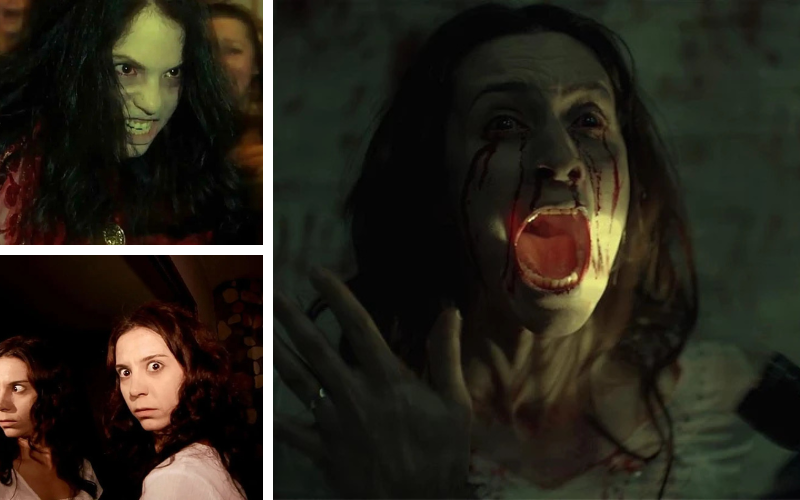
2. Siccin
Siccin is among the very few severely terrifying films made in Turkey, directed by Alper Mestci. The film explores the dark corners of black magic and supernatural forces and the aftermaths of forbidden love. The story is about a woman named Öznur and her obsession with her married cousin, Kudret. When he rebuffs her advances, she turns to dark rituals and the summoning of Jinn in a desperate attempt to win him over. Instead of love, she unleashes a terrible curse that brings death, possession, and torment to everyone near her.
Two things make Siccin quite perturbing. One is its deep connection with Islamic folklore, especially with jinn and demonic possession. The other is that cheap scares rarely accompany these horrors but abound in dread through the erriness of visuals, an unsettling silence, and horrible imagery. The slow-burning dread is compounded by dark settings in the know of the costs surrounding a viewer with an ominous presence.
One of the strongest aspects of Siccin, which adds to the aura of helplessness and dread, is Öznur’s performance, especially her tormenting lead actress. The characterization that depicts the downfall from madness by obsession and desperation is both tragically engaging and utterly terrifying. Other themes throughout the movie include fate, forbidden desires, and the entertaining negativism consequences of meddling in affairs beyond human comprehension. It was disgusting how realistic those practical effects and makeup were; it made the sense of horror even more authentic.
Not merely a horror flick but a psychological and supernatural nightmare that reaches after the spectator’s mind, Siccin became the forerunner of instalments that each pursued distinct avenues regarding black magic and possession. Moreover, a must-see for all horror fans who appreciate tales of sheer unsettling continuum based on real-life myths is Siccin, dolling out rich portions of dark rituals, family curses, and supernatural horrors.
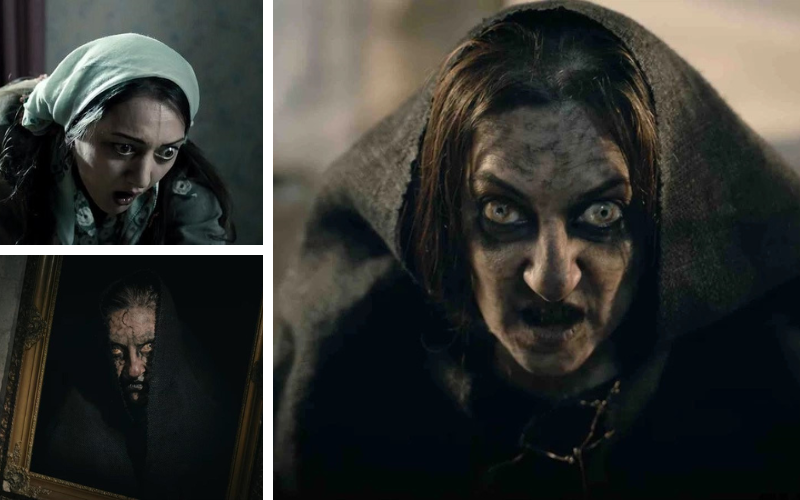
3. Kabir Azabı
In Turkish, Azab al-Kabeer translates to An Abode of Hell. It is a horror story that talks about the grave punishments after death, which are one of the gravest fears in the Islamic concept. Directed by Ilker Tuncay, the story revolves around Salih, a man who deemed merit or morality as irrelevant during his lifetime, who faces after-death judgment in his living nightmare as a series of punishments: horrors of after-life descend upon him due to his own sinful ways.
Kabir Azabı finds the rigging from a different set of ropes compared to the average horror film: human values and beliefs are heavily sucked into the picture. No ghost and no jinn are in sight; instead, the torment of the hereafter, passing the justice of God, and the unknown journey awaiting culpable transgressors after death is the horror inside the movie. The sickening aura of grave punishments, suffocation, isolation-another version of torment-in the very next scenes, followed by sheer supernatural punishment, could seal Islamic eschatology as one of the most horrifying in the movies.
Atmospherically horrifying, the movie’s cinematographic style wields visual language filled with darkness and sound design overflowing with disturbing subliminal meanings aimed at people. The accumulation of slow horror is psychological rather than relying on cheap jump scares, luring the viewer into a suffocating environment of guilt and punishment. The sheer descent of Salih into crushing despair illustrates all too chillingly the burden of conscience that weighs upon one’s consciousness.
More importantly, Kabir Azabı goes beyond being a horror film to become a cautionary tale in the realm of deep spirituality. Such consideration makes its contents all the more frightful for those already acquainted with the Islamic doctrine of the afterlife. A supernatural thriller on the one hand, a moral allegory on the other; one thing is undoubted: a haunting feeling will be stuck in your mind long after the credits of Kabir Azabı roll.
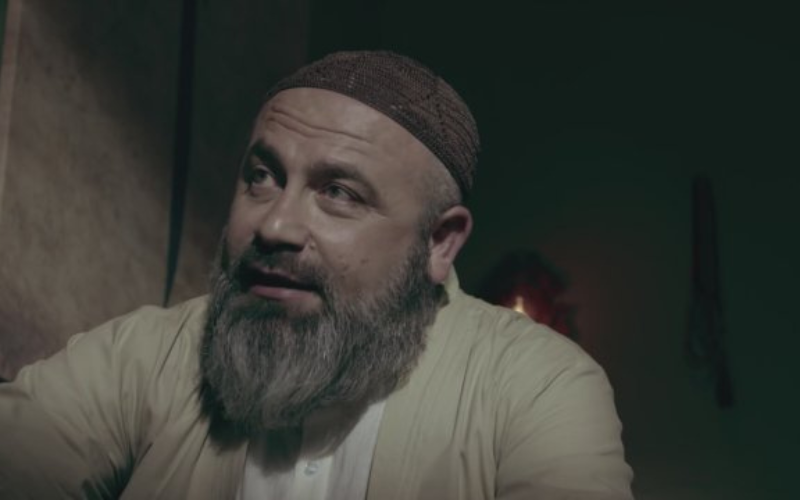
4. Beddua
Beddua is one of such stereotype horror is a horror film by Turkish writer Alper Mestçi, which is penetrative the audience into the very evil world of black magic, jinn possession, and the jinx for revenge, to reveal that four close buddies- Mehmet, Kübra, Eda, and Beste-unbeknownst-to-each other had crossed the path with a diabolical practitioner of dark magic. When they are cursed by this supernatural force that cannot be stopped in their track by any human intervention, horror grips their world as it unravels dark secrets, vengeance, and terrifying encounters with invisible beings.
Beddua is additionally frightening because it claims to be real within the limitations of occultism beliefs and practices as the most defining of Anatolian folklore and Islamic faiths. Unlike most of the Western horrors that typically lay down cut holes of demonic possessions, this incorporates the deepest spiritual lines and strong psychological conditions about the drastic effect bedded creates – a curse that sometimes can befall others through prayers of anger or revenge. Alongside unimaginable tension, disquieting dreams and iconoclastic transformations only in terms of making the entire length a nail-biter.
Its most potent aspects would stand thoroughly on the atmospheric engagements; it creates paranoia through sound design and descends into only partially lit loci but extremely haunting imagery. The jinn manifestations are beautiful in the possession sequences, truly get savage and leave quite a realistic horror due to the exorcism and bodily distortions. Islamic exorcism, including Quran quotations, gives it a real twist and adds glossiness to the effect of horror in dimension.
Beddua is thus distinguished from any other Turkish horror film today in terms of effective storytelling or psychological depth, as actually realistic carnality. It is a must-see for supernatural horror devotees, especially those curious about Islamic myths and black magic. I’d trumpet into the silence as this hauntingly beautiful film nears completion- unless you were a little proud of yourself because it ends bitterly- but the penultimate irony is that some curses cannot be removed.
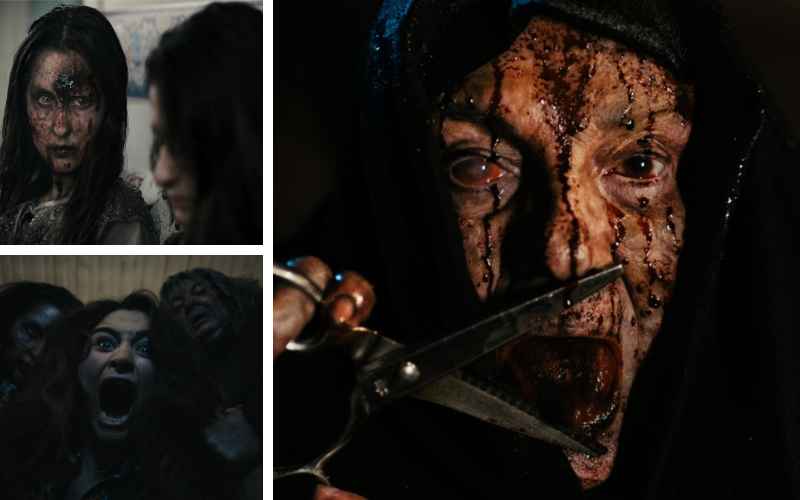
5. Deccal
Deccal is a Turkish horror film that explores, in terrifying detail, the Antichrist (Deccal) concept according to Islamic eschatology. Under the direction of Özgür Bakar, the film follows a dark narrative regarding a sinister pregnancy, a secret cult, and an unstoppable evil that will bring the world to an end. Unlike mainstream horror films focusing on jinn and exorcisms, Deccal deals with apocalyptic horror; hence, it should be considered one of the most ambitious supernatural thrillers put forward by Turkey.
The story is about a very young woman named Duygu, who, after a collection of weird events, finds herself pregnant by unknown means. With the development of pregnancy, however, she started being tortured by nightmarish visions and supernatural happenings, revealing a dark prophecy in which her unborn child is going to become the Deccal, the harbinger of chaos and destruction. While those who know about the prophecy are trying to avert the calamity, the darker forces that oppose them are working in the shadows to facilitate the birth of the child, hence making the battle between good and evil intensely horrifying.
What sets Deccal apart is the mesh of religious horror and psychological terror. The film emphasizes an eerie atmosphere, disturbing images, and slow-burn terror rather than blatant jump scares. Cinematography enhances horror with dark, claustrophobic settings and disturbing sequences that make one feel trapped in an unrevivable nightmare. It is, at times, unbearable because of an unsettling score and disturbing sound effects accentuate the fear.
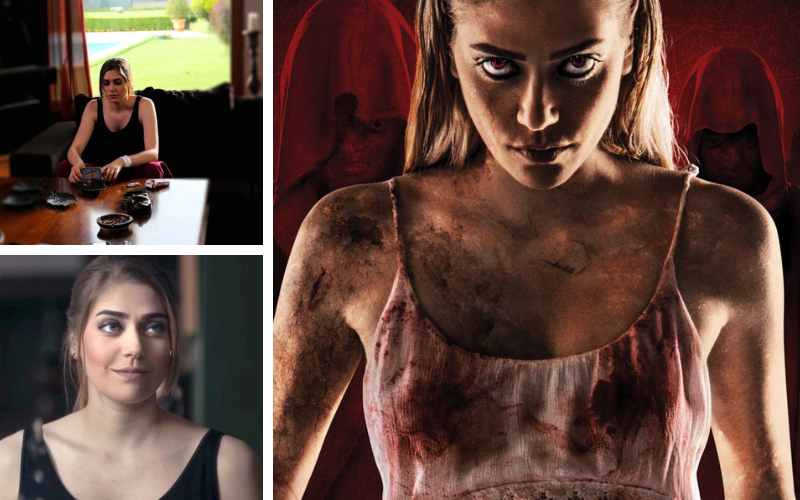
6. Deccal 2
Deccal 2, the film directed by Özgür Bakar, is a sequel to Deccal (2015). It extends the apocalyptic horror story that is taken from Islamic eschatology. This movie is a sequel to the terrible outcomes of a sinister prophecy regarding the birth of the Deccal, the equivalent in Islam of the Antichrist. In short, the part after the event in the first film finds the world undergoing an increasingly awful nightmare as dark forces try to make the possible adjustment for the ultimate evil.
Deccal 2 is not the kind of black magic or Jinny horror film. This film sins up to that height, wherein prophecies, diabolic possessions, and the horrible chaos of the end become the theme. A bunch of people quite secretively is trying to prevent the Deccal even as supernatural forces and strange eerie conspiracy setups make it highly unlikely to achieve the said goal. The film maintains its sometimes frustrating suspense through disturbing images, enigmatic notes, and horrid imagery that never ceases to leave its audience fearing.
From disturbing special effects to spooky settings to revolting transfigurations, Deccal 2 is the complete package of horror. Photography of dark, claustrophobic sets also promotes the sensation of upcoming doom, while sound design adds to terrors in whispering voices, cold recitations, and snapping-chilling sequences. Of all the scenes, those involving possession, and especially with a cursed child, are among the most chilling and horrifying, adding much to the psychological horror within the whole supernatural package.
As part 2, Deccal 2 elevates the stakes. The movie becomes a nightmare that is growing and increasing in volume that merges religion’s horror in apocalyptic forms. Even up to the end, it leaves so many things for the viewers to interpret at a fate, faith, and terrifying inclusion of an addressed prophecy. For fans who dare take a step into an Islamic mythological-based horror film or one that explores the end-of-time scenario, Deccal 2 will keep them glued to the screen in a riveting yet terrifying experience that lingers after the end of the view.
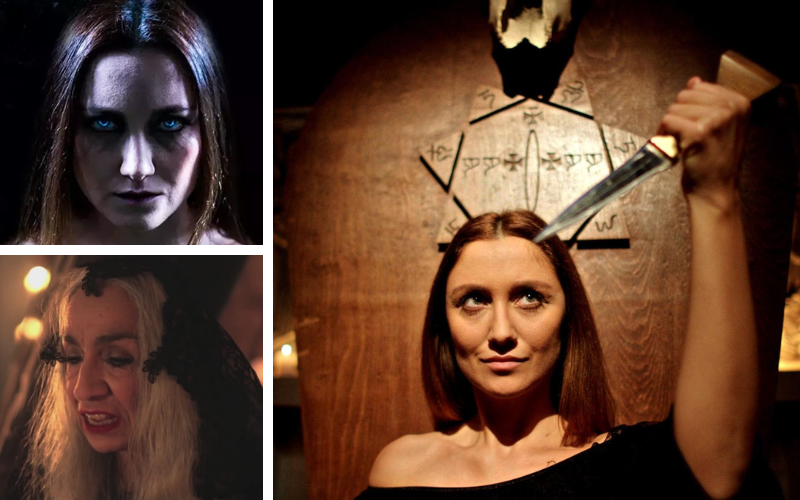
7. Magi
Magi is an international Turkish horror drama directed by Hasan Karacadağ, blending supernatural terror with an unsettling mystery. In contrast to Karacadağ’s Dabbe series dealing with jinn possession and Islamic horror, Magi embraces the Western horror aesthetic while keeping a foothold in Middle Eastern occultism. The plot follows Olivia, an American journalist investigating the death in Istanbul of her estranged sister, Marla; upon her arrival, she learns that Marla has died of horrendous and mysterious circumstances, leading her to a terrifying pursuit involving black magic, ancient curses, and evil forces beyond comprehension.
The slow build of suspense creates an atmosphere that penetrates deep into fear while contrasted with sweet sorrow by the images of death, which psychologically lingers like an ever-present wedge piercing the hearts of the viewers. Enter Olivia as she tries to solve the puzzle of her sister’s death and plunges into the ancient evil tethered to dark sorcery. To build tension, the movie effectively utilizes atmospherically horrifying, dimly lit locations, disturbing visions, and gruesome imagery. It is this psychological horror balanced with supernatural elements that provides an unshakeable sense of dread.
One of Magi’s major attractions is its international appeal. With actors such as Michael Madsen and Stephen Baldwin, the film traverses the divide between Hollywood horror and Turkish supernatural folklore. Its overall increased cinematographic quality and production values have rendered it visually charming and gripping compared to the usual Turkish horror fare. The exorcism and ritual scenes, which draw inspiration from actual occult practices and Middle Eastern folklore, go beyond the cinematic confines of horror.
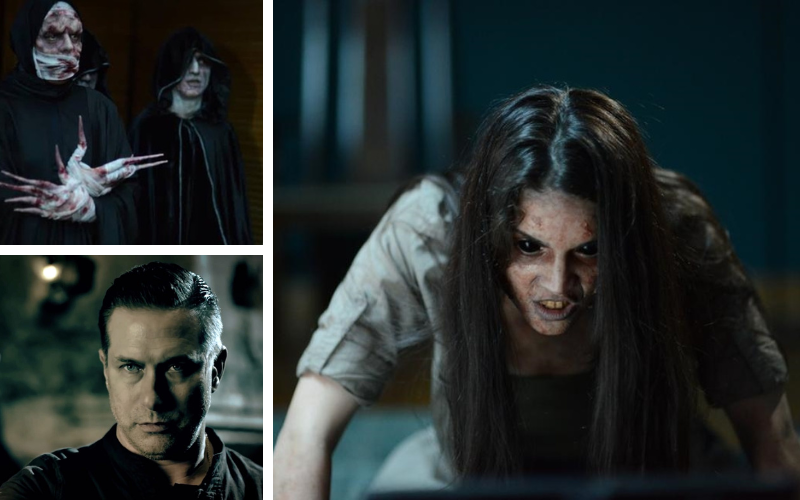
8. Gen
Gen is a psychological horror thriller directed by Togan Gökbakar, with an eerie setting and unsettling atmosphere. The movie revolves around a psychiatric hospital in deep seclusion within Turkey, where a series of horrendous and unintelligible murders delivers terror to patients and staff members. As fear spreads throughout all levels, pumping paranoia, a young psychiatrist, who goes by the name of Deniz, attempts to find the mystery killer. But it gets her twined in an ugly nightmare of madness, supernatural inner forces and long-suffering trauma.
The real identity of Gen is upon psychological mentalism. Contrary to most typical Turkish horror film productions of jinn and black magic themes, this film can decorate the human psyche, eliciting paranoia, plus a thinner separation between sanity and insanity. An isolated hospital doubles fear, constituting a claustrophobic environment where reality begins to reside with hallucinations, and no one can be trusted. The revelation of its mystery unravels slowly, and the audience is kept hanging at the edge with disturbing imagery and eerie sound design as unpredictable plot twists follow one another.
The cinematography further heightens the discomfort within the film, with dim lighting and feverish angles, with the added colour palette bringing forth that fomenting sense of dread. It is from these acting performances, particularly the Chinese release of the lead actress, that emotions are derived in horror, making it feel raw and real. Yes, there is an amount of supernatural, but the reality of terror and unpredictability of the human mind exists on a psychological level.
Gen is an underrated Turkish horror film that leans more towards psychological horror than its traditional counterpart in terms of supernatural scares. It is a must-see for anyone who loves slow-burn psychological horror thrillers, particularly those set in creepy hospitals and is left wondering what is real and what is not.
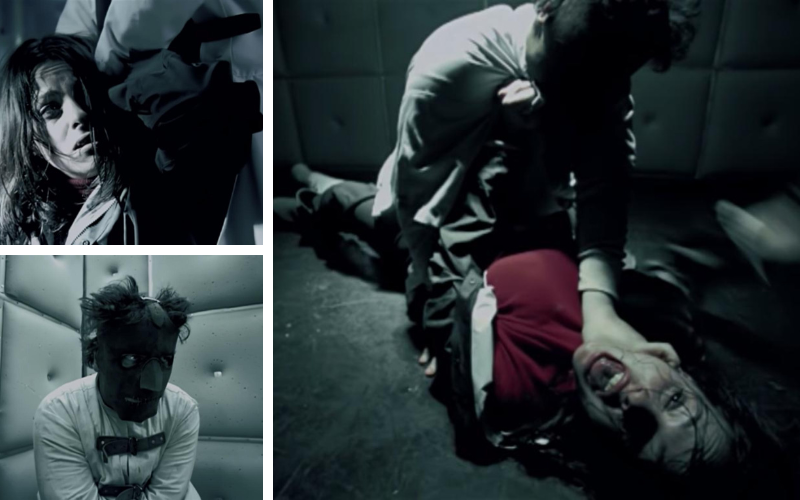
9. Baskin
Created by Can Evrenol, Baskin is one of Turkey’s most disturbing and internationally acclaimed horror movies. This blend of psychological horror and grotesque surrealism follows a squadron of police officers responding to an SOS from an abandoned building. From a routine investigation, it becomes a surreal nightmare of grotesque horrors, sadistic rituals, and twisted creatures beyond human comprehension with the entrance into hell.
What makes Baskin extraordinary is its nightmarish, almost dreamlike storytelling. The film doesn’t offer many jump scares; instead, it breeds an overpowering dread through unsettling imagery, chilling sound design, and a mind-bending storyline. As they descend deeper into the building, all sense of reality blurs, trapping them forever in a waking dream. The entire setting is a butchered corridor of torture and suffering, catacombs reminiscent of classic cosmic horror and Lovecraftian nightmare, where the audience feels just as lost and helpless as the characters.

10. Cadi
Cadı is a Turkish horror film dedicated to the fantasies of witchcraft, curses, and dark folklore. While many horror films from Turkey deal with supernatural subjects, there is hardly any international recognition garnered by the offering explicitly Cadı. Lesser-known productions would, however, certainly pitch the more traditional Anatolian folklore themes, where witches (cadı) are evil beings who summon dark forces, mete out deadly curses, and haunt desolate villages.
If a genuinely obscure title, it would, in an atmospheric way, slowly burn its horror into the audience’s mind in a fashion akin to Baskin or Dabbe, creating an ambience of psychological terror, possession, and supernatural revenge. Inspiration is drawn from real-life myths and Islamic occultism for most Turkish horror movies, which often portray the figure of a witch as sinister, sickening away from the weak or balancing vengeance with black magic.
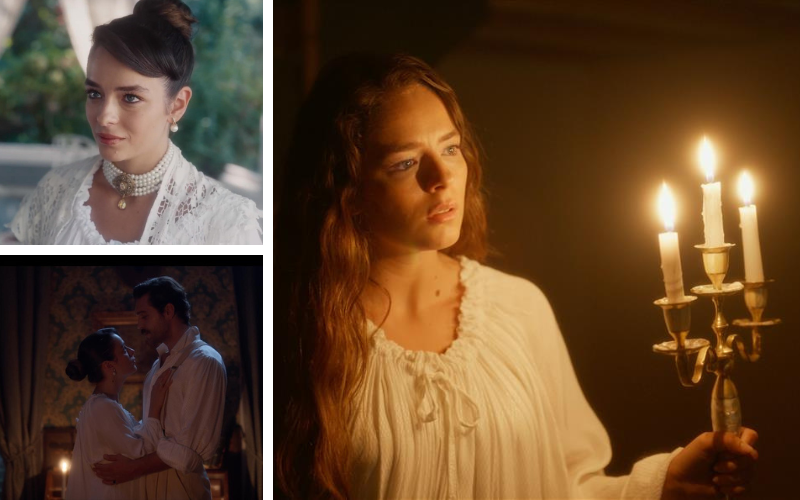
11. Sahipli
Sahipli is a horror series from Turkey that was released in 2017. It was created by Alper Mestci, who is also the director of other horror films like Siccin and Musallat. Unlike the traditional approach of bringing horror through a film, Sahipli serializes and allows the storyline to unfold slowly over several episodes.
It tells about a girl, named Büşra, agitated by horrid visions and nights since her childhood. Now, she returns to her family’s old abandoned mansion, wherein she is astonished by the well-known. Meanwhile, a psychiatrist named Selim, who is thrilled with the supernatural element, engages in investigating the findings of Büşra, drawing him into a very horrifying web of black magic, curses, and the unknown.
The film blends psychological horror with supernatural terror. The slow buildup of the story does not consist of cheap jump scares, but atmospheric tension heightens the anticipation of more chilling events. Dark, abandoned mansions, whispers, and the presence of evil spirits contribute to keeping up the tension. Alongside horror, the series ventures into themes of trauma, fate, and how unseen forces control the lives of humans.
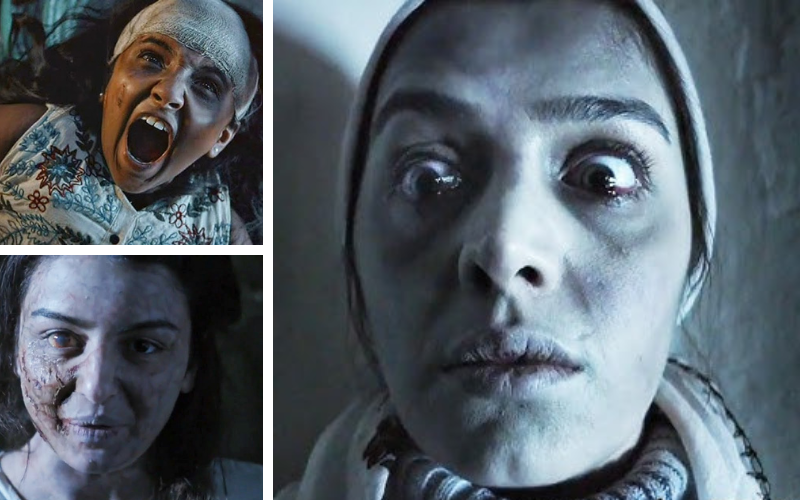
12. Semum
A 2008 film, Semum, directed by Hasan Karacadağ, is one of the finest examples of horror cinema to come out of Turkey, being inspired by Islamic mythology and real-life cases of exorcism. The movie narrates the terrifying venture of Canan, a woman whose life turns upside down when she and her husband move into a new house. The onset of strange happenings escalates to the point of Canan demonstrating erratic and violent behaviour, forcing her loved ones to believe that an evil spirit may possess her. As the possession reaches hysterical levels, a more powerful malevolent entity-the Semum, an ancient demonic being according to Islamic belief-is slowly revealed.
While Western horror stories are indisputably horrid, Semum clearly expresses its cause and root in Islamic demonology and exorcism rituals. Departing from the conventional horror conventions of scare jumps and gore scenes, Semum instead constructs terror through psychological means spiritual plight of its victims and supernatural phenomena that turn raucous and outrageous. It touches on themes of faith, the fight between good and evil, and the human susceptibility to dark forces beyond our material existence.
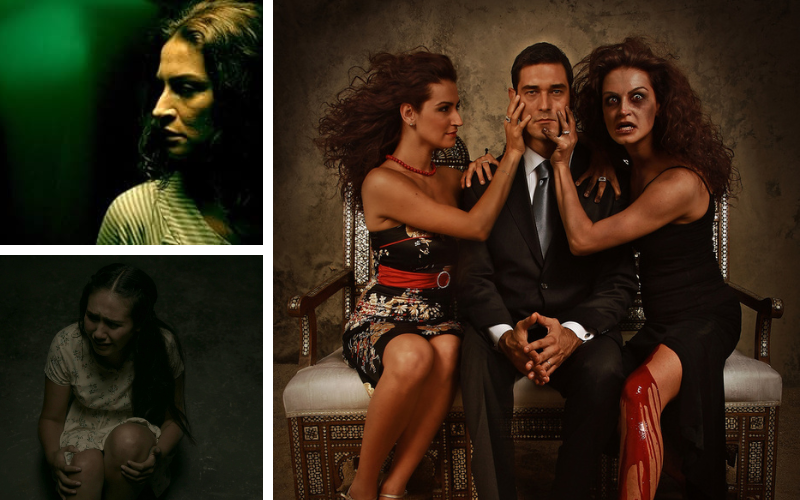
13. Musallat
Musallat is a chilling Turkish horror film directed by Alper Mestçi. It delves deep into the terrifying realm of jinn possession and supernatural revenge. Unlike Western horror movies that focus on ghosts or demons, Musallat taps into Islamic mythology, bringing to life the horrors of unseen entities that can torment and destroy lives.
The story follows Suat and Nurcan, a young couple deeply in love and preparing for marriage. However, Suat begins to experience unexplainable visions, eerie nightmares, and an overwhelming sense of dread. As the wedding day approaches, his mental and physical health rapidly deteriorates, and strange supernatural events start to plague his life. Soon, it is revealed that a malevolent jinn has been obsessed with Suat for years, refusing to let him live a normal life. The film turns terrifying as the jinn’s presence becomes more violent, leading to horrifying consequences.
What makes Musallat truly disturbing is its atmospheric tension. The film avoids cheap jump scares and instead relies on a slow build-up of fear, eerie sound design, and unsettling cinematography. The dark, shadowy visuals and claustrophobic settings add to the suffocating horror, making the audience feel trapped alongside the protagonist. The film also explores themes of fate, the supernatural consequences of past sins, and humans’ helplessness against unseen forces.

14. El-Cin
El-Cin is this interesting Turkish horror film by Hasan Karacadağ, who is worthy of being called a master of supernatural horror, especially when it comes to tackling jinn and Islamic mythology. The movie tells the eerie and mysterious tale of a disappearance case that intertwines psychological horror with spine-chilling supernatural elements.
A couple of friends suddenly disappear under horrible, unknown circumstances. As the authorities and the locals try to investigate, it becomes readily apparent that these disappearances lead to a whole realm of ancient and malevolent curses caused by a jinn. Great horror piles onto the remaining survivors as they experience nightmares, possession, and all kinds of otherworldly shadow-like entities coming their way. Their investigation reveals the awful truth hidden in black magic rituals and a centuries-old jinn pact.
What really makes El-Cin disturbingly beautiful is its atmospheric tension and eerie camerawork. The film does not opt for abundant jump scares but instead relies on an intense feeling of dread, whispers that make the skin crawl and very unsettling images thrown in for good measure. All laced with Islamic prayers, exorcism rites, and traditional folklore, the film carves a distinct niche in Turkish horror.
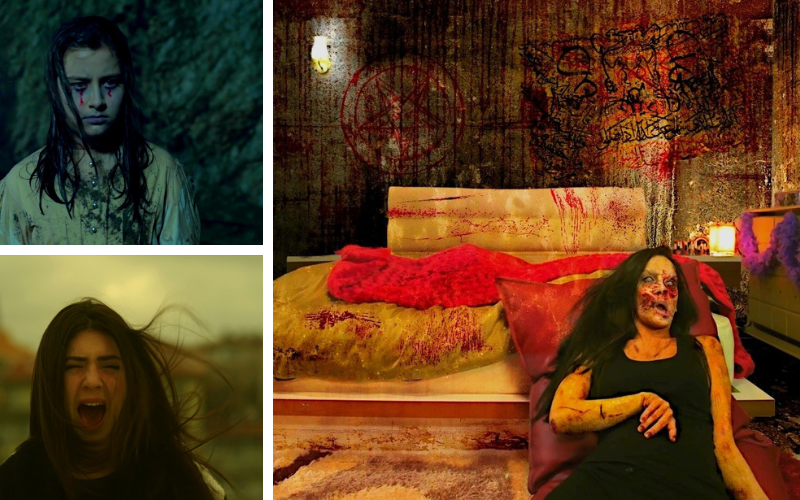
15. Hüddam
Hüddam is a disturbing Turkish horror that violates all defined limits and stretches the bounds of horror. It leads to occult rituals, black magic, and jinn. Directed by Utku Uçar, the film portrays slow-building horror within disturbing imagery and psychological terror by adorning Islamic mysticism and ancient supernatural beliefs.
In fact, Can is a young boy who starts experiencing mysterious, awful incidents in his life at the time of his mother’s passing. In search of answers, he confronts dark family horrors relating to an almost scary kind of ritual and then realizes the malignant bloodline has attached itself to his line. However, the truth is much darker than Can imagine.
Hüddam distinguishes itself by deeply changing and tense connectivity with Islamic esotericism. When it doesn’t depend on too many weighty jump scares, instead focusing on an uncanny atmospheric sound design, uncanny, somewhat chilling morbid cinematography, and that slow but thrilling tale about just reading forbidden texts and meddling with dark forces.

16. Acayip Hikayeler
A Turkish horror anthology, Acayip Hikayeler, which translates to Bizarre Stories, was produced in 2012 and featured an array of creepy, supernatural, and psychotic tales inspired by folklore, urban legends, and the darkest corners of human nature. This is often compared to Black Mirror or Tales from the Crypt. The show offers a fine fusion of horror, suspense, and mystery in every episode.
It is the unsettling storytelling and creepy atmosphere that makes it personal for a really unique Acayip Hikayeler. This series includes another very independent but terrifying story, one by one, including curses, supernatural beings, jinn possession, dark rituals, and twisted human characters. The series is also known for its disturbing imagination, surprise twists, and psychological horror throughout.
Narrated by Reha Özcan, the series has a chilling tone that could make one feel as though the whole audience listened to ghosts’ campfire stories, ready to come to life at any time. The series has established an amazing haunting and nightmare quality through cinematography and eerie soundtrack qualification, ensuring every episode stays in viewers’ minds long after it ends.
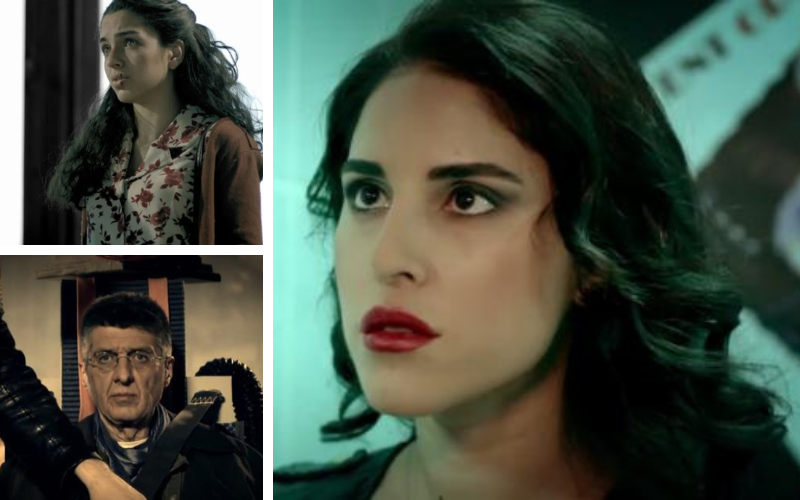
17. Üç Harfliler: Adak
Turkey’s notoriously frightening Üç Harfliler horror franchise, which addresses jinn, black magic, and supernatural revenge, gains another spine-tingling piece with Adak. Here, Alper Mestçi continues the grim affairs of the series with a look into the consequential curse for meddling with dark forces and an unnerving, horrifying presence.
The plot tells of Salih and Metin, two close friends without pity for a woman, who suddenly find themselves being hunted by a relentless supernatural force. Strange and truly frightful things begin to unfold before their eyes: the jinn, awakened by the victim’s cries of suffering, seeks revenge upon Salih and Metin in the most grisly manner the two could ever imagine. Whispers of doom in their ears, terrifying sights threatening to consume their sanity, and inescapable dread awaiting them—that’s what is waiting for these two as they fall prey to the dark entity.
What makes Üç Harfliler: Adak stand out among other Turkish horror films is its oppressing atmosphere, gruesome imagery, and truly psychological horror that tortures the very insides of our souls. Instead of blatant jump scares, it builds an environment of discomfort and helpless dread to the point that the audience almost feels as if something is looking at them through the screen. The shooting, dim lighting, and haunting Islamic prayers embedded in the soundtrack only cement your unbelievably immersive horror experience.
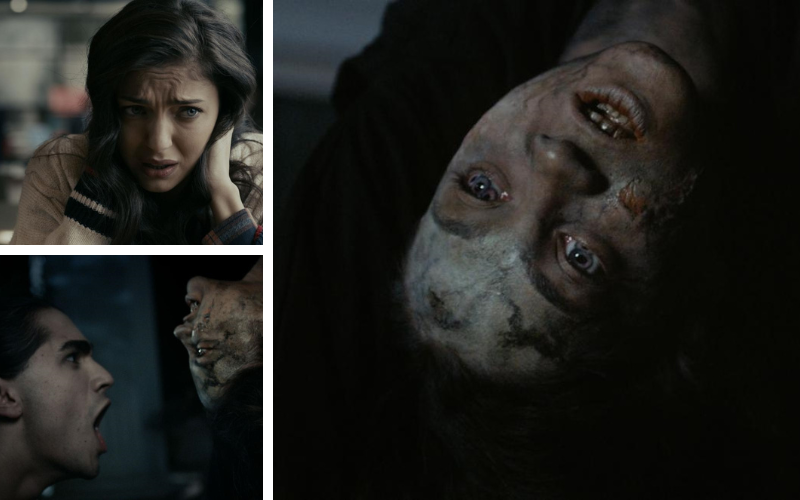
18. Küçük Kiyamet
Küçük Kıyamet is a psychological horror-thriller that interweaves supernatural elements with potent emotional and psychological trauma. This work takes its place in the canon of Turkish horror films as an anti-classical exploration of fear, grieving, and trauma that is really haunting rather than building up to cheap jump scares or laying out supernatural horrors. The directorial duo of Durul Taylan and Yağmur Taylan does justice to this work. Their exploratory outreach engages our feelings surrounding fear and trauma, grief, and how the trappings of time may hunt us down.
The traditional storyline tells of a family trying to escape the metropolitan life of Istanbul and have a nice holiday in a coastal town. From here, relaxing becomes a nightmare for the family as inexplicable things start haunting them. Hallucinations and visions of doom hound the mother, Bilge, whose past trauma intertwines with her present horror. The forefront of tension keeps dancing upon the line that separates reality from hallucination. The end is a shocking and disturbing conclusion for the movie that ties in with the actual disaster 1999 Marmara earthquake, a national disaster that left behind a deep scar on Turkey.
What terrifies me about Küçük Kıyamet is the atmospheric horror and psychological depth. The very core of the horror experience is picked to pieces, showcasing progressively paranoia, forcing the viewer to wonder what is real and what is not. The film is even tethered by camera movement, an atmospheric sound design, and deeply disturbing sequences.
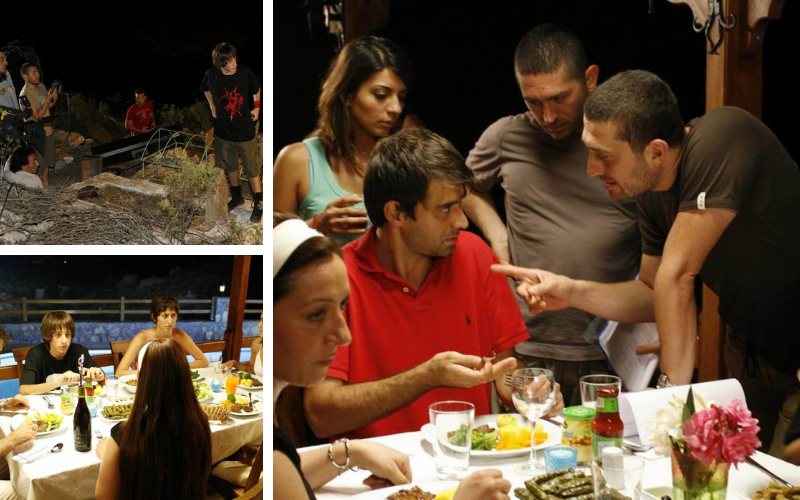
19. Çocuklar Sana Emanet
Çocuklar Sana Emanet is the name of an unusual psychological horror-thriller by Çağan Irmak, known for his emotional approach to story-telling. Unlike traditional Turkish horror movies based on jinn, black magic, or demonic possessions, this one uses grief, trauma, and supernatural redemption as its topics, creating a mix of suspense and psychologically deep themes.
The narrative revolves around Kerem, a successful interior architect whose life is wrecked by a devastating car accident. Grief-stricken and racked with guilt, he makes his way to a remote village wherein strange and unexplainable happenings begin to haunt him. While uncovering past dark secrets, he realizes that this journey questions his healing not only from the trauma of losing a child but also from confronting a supernatural being who desires justice.
Unlike the classic Turkish horror style embodied by Dabbe or Siccin, Çocuklar Sana Emanet brings forth deep psychological and atmospheric tones, with the protagonist being tortured by inner conflict and forced to confront his unquiet past through supernatural encounters. The film generates a painful emotional core balanced with atmospheric horror, broadening engagement with mystery, suspense, and quiet anxiety-inducing chills within its audience.
A disturbing, emotionally charged walk through psychological horrors of supernatural origins, Çocuklar Sana Emanet is entirely worth watching. Unique to Turkish horror cinema, it shows how, at times, the scariest of ghosts are the ones that live within us.
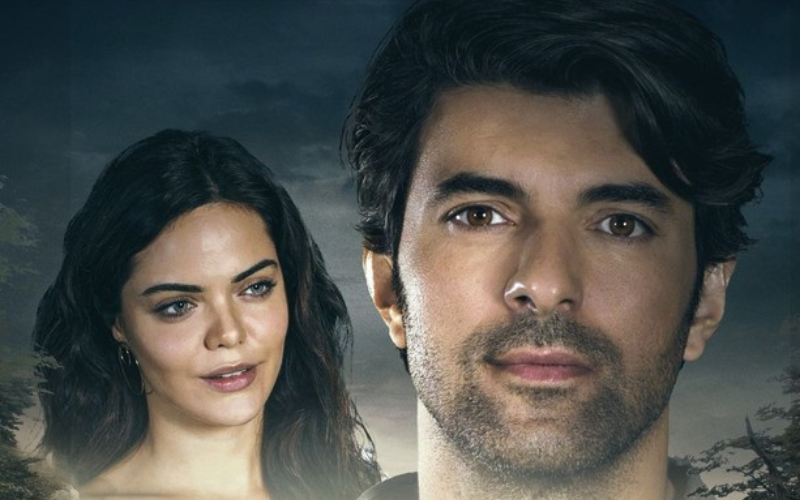
20. Kutsal Damacana
Kutsal Damacana is a horror-comedy from Turkey that parodies classical exorcisms and horror films such as The Exorcist. The movie features Fikret, a former sailor who, through a series of misunderstandings, poses as a priest and ends up performing an exorcism. However, his lack of real religious knowledge leads to absurd and hilarious situations.
The end retains its comedic essence because of the unexpected chaos resulting from Fikret’s unorthodox methods of exorcising the demon. Contrary to classic horror films, Kutsal Damacana aims not at a terrifying climax but a more satirical and funny resolution. The film concludes with a mixture of the supernatural and pure slapstick comedy, adding more to its reputation as one of the cult films of Turkish cinema.
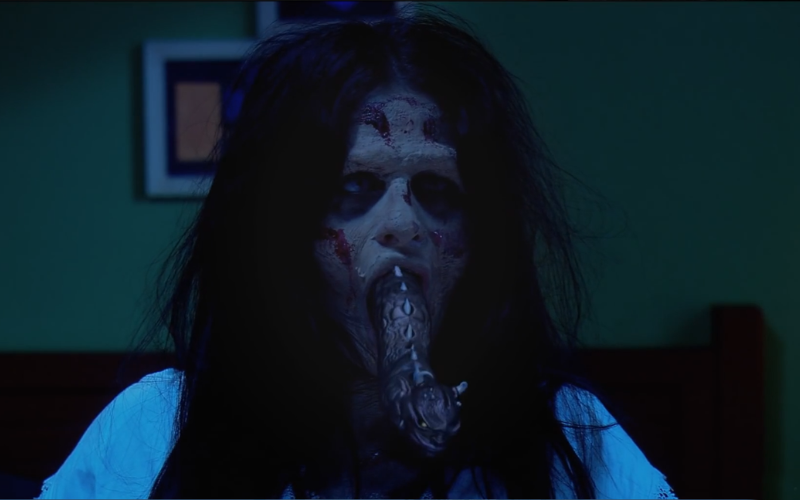
Conclusion
Turkish horror cinema finds its identity in folklore and religion as it strongly ties into uneasily psychological horror. These films do not use jump scares to scare audiences; instead, they delve deep into the subject of possession, curses, and ancient evils that create an eerie horror atmosphere. The awful impressions created by Dabbe, the ceremonies of Siccin, and the hellish mythological inquiry by Baskin all push the envelope into extreme and nerve-wracking territories. If you’re a die-hard horror fan, you’re all set for a very chilling experience on screen; if not, it’s wiser to refrain from watching it alone.
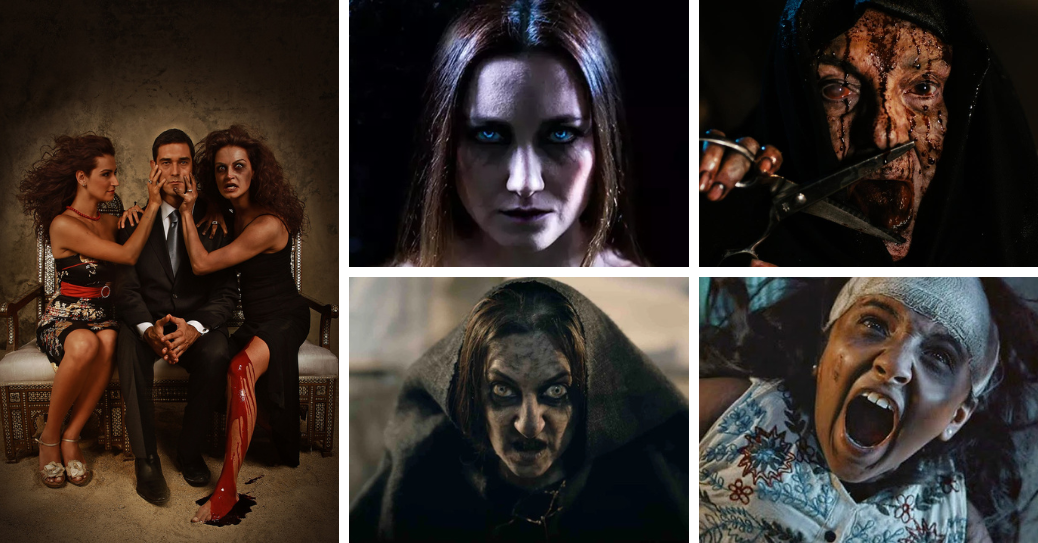


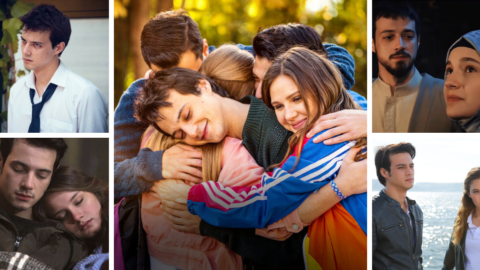


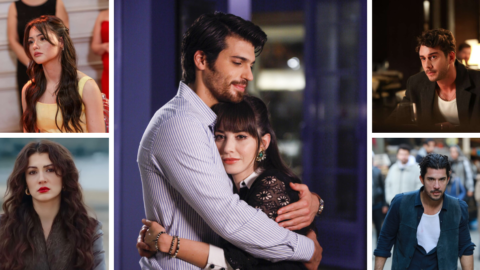






 Get survival, travelling and auto tips, follow new technology trends, entertainment stories and world events with PeekTimes.
Get survival, travelling and auto tips, follow new technology trends, entertainment stories and world events with PeekTimes.